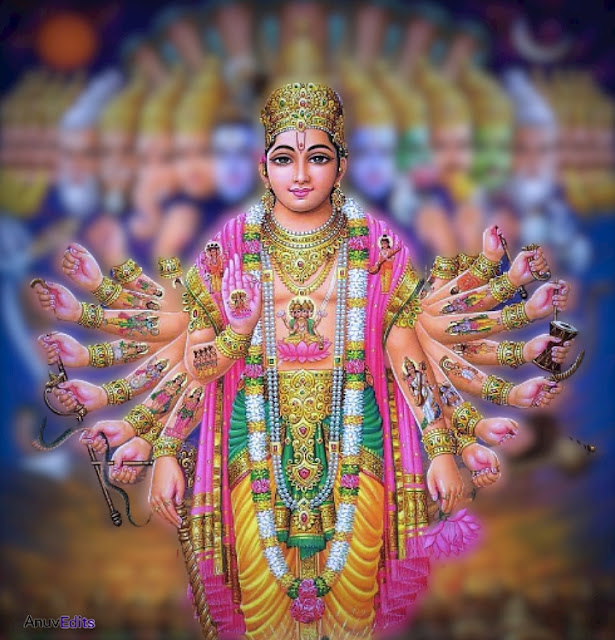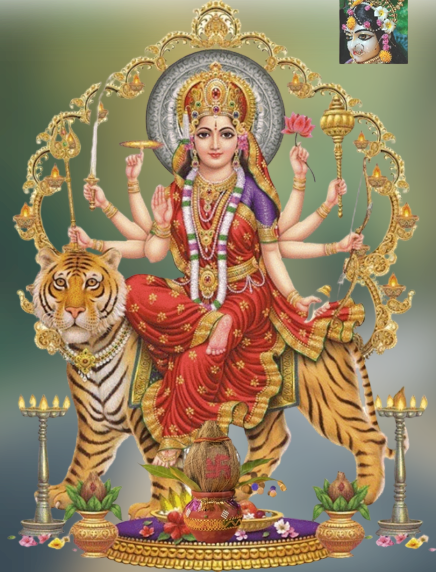Dwadashi: Significance, Rituals, and Celebrations Across India
Introduction:
Dwadashi is an important day in the Hindu calendar that is observed on the 12th day of both the waxing and waning phases of the moon. It is considered an auspicious day for performing rituals and seeking blessings from the Gods. In this blog post, we'll explore the significance of Dwadashi and how it is celebrated across different parts of India.
Significance of Dwadashi:
Dwadashi is associated with Lord Vishnu, one of the most important deities in the Hindu pantheon. Lord Vishnu is believed to be the preserver of the universe and is considered to be the ultimate embodiment of compassion and wisdom. According to Hindu mythology, Lord Vishnu incarnates on Earth whenever the balance between good and evil is disrupted. Dwadashi is considered an auspicious day for seeking the blessings of Lord Vishnu and is believed to be particularly beneficial for those who observe fasts and perform rituals on this day.
Observing Fasts on Dwadashi:
One of the most common practices associated with Dwadashi is fasting. Devotees abstain from consuming food for the entire day and break their fast only on the next day, during the auspicious time known as "Parana." Fasting on Dwadashi is believed to cleanse the body and mind and help one attain spiritual purity. It is also believed to be a way to express devotion to Lord Vishnu and seek his blessings.
The type of fast observed on Dwadashi may vary depending on the region and the individual's preferences. Some people may choose to fast on water or fruit, while others may choose to abstain from food altogether. The fast is broken on the next day, during the auspicious time known as "Parana." During Parana, devotees offer food to Lord Vishnu and seek his blessings.
Rituals Associated with Dwadashi:
Apart from fasting, there are several other rituals that are associated with Dwadashi. One of the most important rituals is the performance of the "Satyanarayan Puja," which is dedicated to Lord Vishnu. The Satyanarayan Puja is performed by reciting hymns and offering prayers to Lord Vishnu. The puja is believed to bring prosperity, happiness, and success in life.
Another important ritual associated with Dwadashi is the recitation of the "Vishnu Sahasranamam." The Vishnu Sahasranamam is a hymn that contains the thousand names of Lord Vishnu. It is considered to be one of the most sacred texts in Hinduism and is believed to have immense spiritual power. Reciting the Vishnu Sahasranamam on Dwadashi is believed to bring peace and prosperity in life.
In some parts of India, Dwadashi is also associated with Lord Krishna. On this day, devotees may perform special puja and offer prayers to Lord Krishna. In some regions, devotees may also observe a fast on this day as a way of expressing their devotion to Lord Krishna.
Celebrations Across India:
Dwadashi is celebrated across different parts of India, with different regions having their own unique customs and traditions. In North India, for example, Dwadashi is associated with Lord Vishnu, and devotees may perform the Satyanarayan Puja and recite the Vishnu Sahasranamam on this day. In some parts of North India, devotees may also observe a fast on Dwadashi.
In some parts of South India, Dwadashi is also known as "Vaikunta Ekadashi," which is celebrated as the day when Lord Vishnu opened the gates of Vaikunta, his abode, to his devotees. On this day, devotees may visit Vishnu temples and offer prayers to Lord Vishnu. The most famous Vaikunta Ekadashi celebration takes place at the Sri Ranganathaswamy Temple in Srirangam, Tamil Nadu.
In Western India, Dwadashi is associated with Lord Shiva, and devotees may perform the "Mahamrityunjaya" mantra on this day. The Mahamrityunjaya mantra is believed to have healing powers and is recited to overcome physical and mental ailments.
In Eastern India, Dwadashi is associated with Goddess Lakshmi, the goddess of wealth and prosperity. On this day, devotees may perform the "Mahalakshmi Puja" and offer prayers to the goddess for blessings of wealth and prosperity.
Conclusion:
Dwadashi is an auspicious day in the Hindu calendar that is associated with Lord Vishnu, Lord Shiva, Lord Krishna, and Goddess Lakshmi. Observing fasts and performing rituals on this day is believed to bring spiritual purity, prosperity, and success in life. Celebrations of Dwadashi vary across different parts of India, with each region having its own customs and traditions. Despite the regional variations, Dwadashi remains a day of great significance for Hindus, and devotees seek the blessings of their chosen deity on this auspicious day.



Comments
Post a Comment